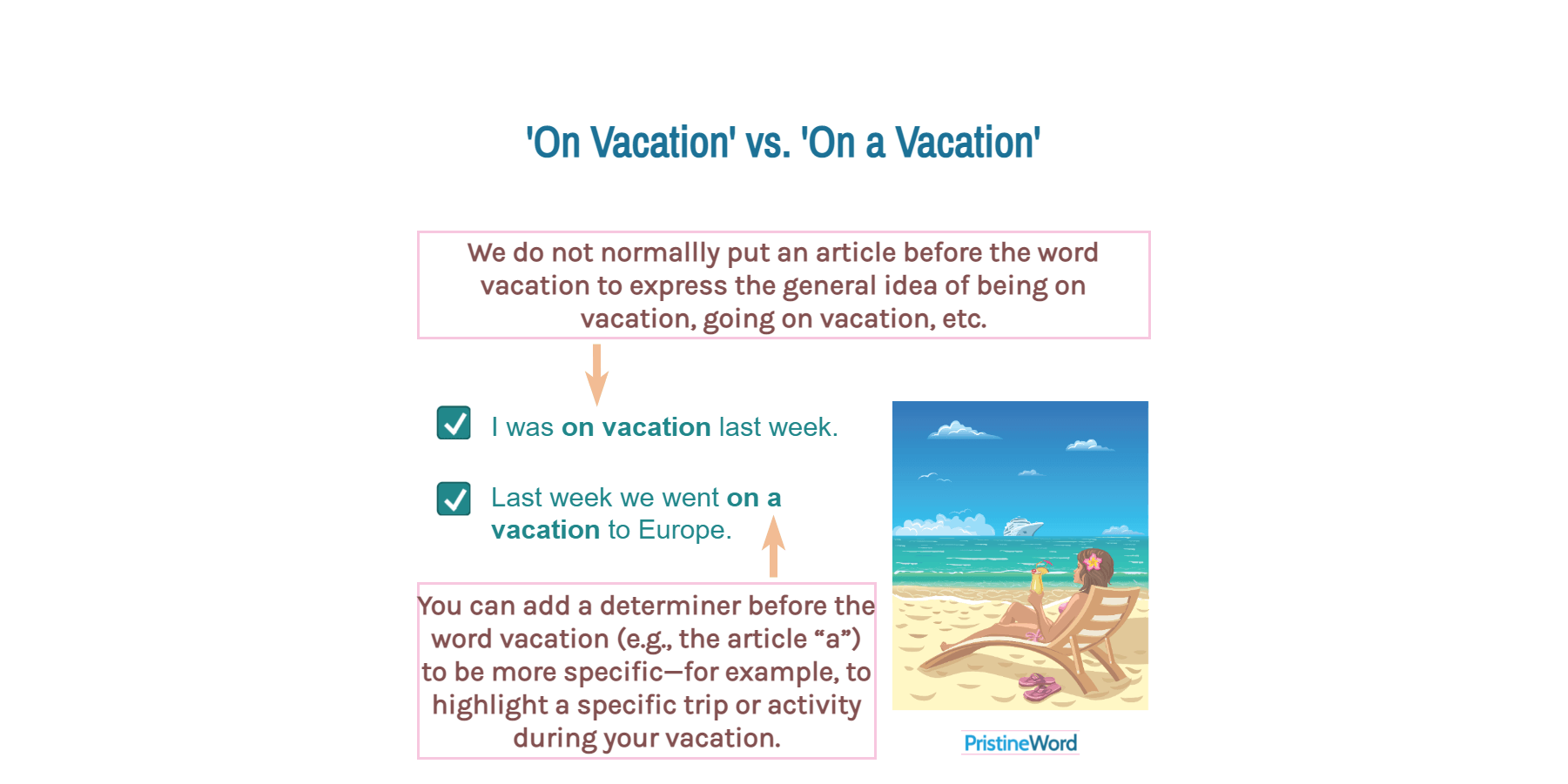In American English, we typically use the expressions “on vacation”, “being on vacation”, or “going on vacation” (without the article “a”) to refer to a period of time (away from school or work) to relax or travel.
In American English, we typically use the expressions “on vacation”, “being on vacation”, or “going on vacation” to refer to a period of time (away from school or work) to relax or travel. This is the equivalent of the British phrase “on vacation”.
I went to Spain on vacation last summer.
You can say "on a vacation" to be more specific—for example, to highlight a specific trip or activity during your vacation.
We went on a vacation to Europe last summer.
We need the article "a" (or another determiner) with the expression “take a vacation”.
I’m taking a vacation in September.
Contents
1. When to Use an Article Before ‘Vacation’
In American English, we commonly use the phrase “on vacation” to express that someone does not go to work (or school) during a number of days or weeks.
I am going on vacation next week.
Alice was on vacation last month.
We do not normally put an article before the word vacation to express the general idea of being on vacation, going on vacation, etc.
We went to Mexico on vacation.
Last week I was on vacation.
But you can use a determiner, typically the article “a”, to be more specific. For example, you can say “on a vacation” to highlight a specific trip or adventure during your vacation.
I went on a vacation to Thailand with my wife.
We also add the article “a” with the expression “take a vacation”.
I hadn’t taken a vacation in many years.
We are taking a vacation in August.
2. Can You Say ‘The vacation’?
When talking about a specific vacation that has been previously identified or mentioned, you can use the article “the”.
We went to Paris on vacation last summer, but my short-tempered husband spoiled the vacation.
Olivia and her husband spent more money on the vacation that they should have.
But do not use the article “the” to express the general idea of being on vacation.
We are on vacation.
We are on the vacation.
3. Other Determiners
You can also use a possessive pronoun (my, your, his, her, our, your, or their) before “vacation”.
Reading is a productive and relaxing way to spend our vacation.
You can add some exciting experiences to your vacation.
The noun “vacation” can be both countable and uncountable; therefore, you can use the plural form of the word (vacations).
Under the new plan, the students of this school will have shorter summer vacations.

